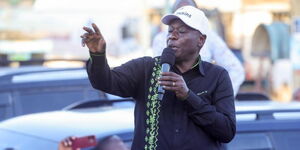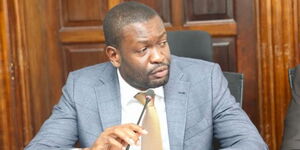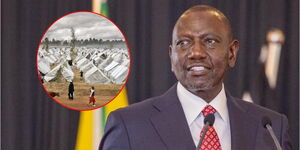Hopes for a swift conclusion to the much-anticipated free trade agreement between Kenya and the United States have been dampened as negotiations continue to drag on.
Despite initial optimism surrounding the Strategic Trade and Investment Partnership (STIP), only 30 to 40 per cent of the proposed deal has been finalized, according to U.S. Ambassador to Kenya, Meg Whitman.
Ambassador Whitman revealed on Wednesday, May 15, that the completion of the trade deal, initially expected to coincide with President William Ruto’s upcoming US State Visit, will likely be delayed by several months.
The STIP aims to provide Kenya with enhanced access to the US market, particularly crucial as the African Growth and Opportunity Act (Agoa) faces an uncertain future, set to expire in 2025.
"This thing is quite technical and quite detailed," Ambassador Whitman explained during an interview on Spice FM. "I would say we are probably 30-40 per cent of the way through."
While negotiations have progressed, significant hurdles remain, with the possibility of the deal extending into 2025, compounded by the impending US Presidential Elections in November.
If the pact is not signed before the US elections, Kenya may find itself in a difficult position if President Joe Biden is not reelected. STIP is a trade proposal made by the Biden administration in response to former Presidents Donald Trump and Uhuru Kenyatta's Free Trade Agreement.
This week, the United States and Kenya are set to hold their fifth in-person negotiating round in Washington, D.C., focusing on key topics including agriculture, workers’ rights, and customs facilitation.
The STIP, launched in 2022, marks a significant shift in bilateral relations beyond AGOA, with both governments aiming to establish high-standard commitments in various non-tariff trade issues.
Despite initial momentum, progress has been hindered by the transition from free trade agreement (FTA) talks initiated under former Presidents Donald Trump and Uhuru Kenyatta to the STIP framework under the Joe Biden Administration.
Kenya's eagerness to secure a deal reflects broader continental efforts, as Africa advocates for an extension of AGOA, crucial for facilitating duty-free access to the US market for over 6,000 products.
However, trade dynamics between the two nations remain imbalanced, with the US exporting significantly more goods to Kenya compared to imports.
Kenya’s exports to the US, primarily apparel under AGOA, are vital for its economy, while imports from the US include pharmaceuticals and aircraft.
Trade dynamics between the two nations heavily favour the US, with Kenya exporting goods worth Ksh93.43 billion last year, mainly apparel under AGOA, while importing pharmaceuticals and aircraft. The ongoing negotiations aim to rebalance trade relations and pave the way for a more mutually beneficial agreement.
Kenya's quest for a robust trade deal with the US comes as President William Ruto seeks US investments in Kenya totaling $250 billion (approximately Ksh32.56 trillion in the current exchange rate) during his state visit in May.












